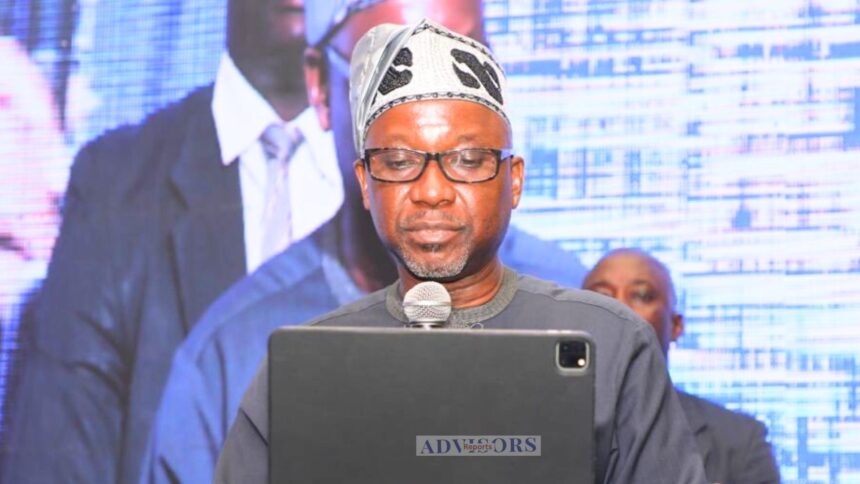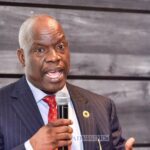says … “Nigeria’s gas must work for Nigerians, not just as an export commodity”
Oredola Adeola
Rt. Hon. Ekperikpe Ekpo, Minister of State for Petroleum Resources (Gas), has confirmed that all current gas offtakers are receiving adequate supply to meet their industrial needs.
He made this known during the Ministerial Address and Opening Ceremony of the 48th Nigeria Annual International Conference & Exhibition (NAICE) 2025, theme: “Building a Sustainable Energy Future: Leveraging Technology, Supply Chain, Human Resources, Policy” organised by the Society of Petroleum Engineers (SPE) Nigeria Council.
Advisors Reports has gathered that gas offtakers in Nigeria, particularly within the manufacturing sector, have consistently raised concerns over inadequate gas supply, which has significantly hampered industrial productivity.
Many manufacturers reported receiving less than 50% of their contracted gas volumes, forcing them to cut production from 60–70% capacity to as low as 15%. In extreme cases, some firms considered shutting down operations entirely due to persistent energy constraints.
The crisis has largely been attributed to chronic infrastructure deficits, insecurity in the Niger Delta, and rampant pipeline vandalism, which have disrupted effective gas delivery to domestic industries.
In response, the administration of President Bola Tinubu has taken steps to address these challenges through the expansion of gas infrastructure, implementation of the Domestic Gas Demand Aggregation framework, and enforcement of the Decade of Gas agenda, aimed at ensuring more reliable and adequate gas supply across the country.
The Minister, in his presentation, explained that the development aligns with President Bola Tinubu’s “From Gas to Prosperity”, a vision that reflects Nigeria’s national ambition to utilise the country’s natural gas resources to fuel industrialisation, create jobs, and expand access to clean and affordable energy for all Nigerians.
He further stressed that Nigeria’s gas must work for Nigerians, not just as an export commodity, but as a foundation for inclusive growth, national development, and energy security.
He said, “The twin imperatives of ensuring energy security and meeting climate commitments have placed countries like Nigeria at the forefront of a global balancing act, one that demands thoughtful innovation, bold policy decisions, and strategic investment. Over the past year, we have taken decisive steps in line with this vision.”
The Minister noted that the theme of the event aligns squarely with the Federal Government’s efforts to reconfigure the country’s energy sector into one that is more sustainable, inclusive, and future-oriented.
He said, “We have expanded gas supply for industrial use, prioritising gas availability for manufacturing hubs, power generation, and industrial corridors.”
“We have rolled out the LPG Penetration Programme, distributing cylinders across the six geopolitical zones and empowering women and youth, promoting clean cooking, with a renewed target of moving about 5 million homes to clean cooking by Year 2030.”
“We have increased investment in gas infrastructure, with critical projects like the OB3 and AKK pipelines progressing to deliver gas to markets nationwide; promoted modular and scalable gas projects, including mini-LNG and CNG stations, to improve last-mile access and stimulate local economic activity.”
“Facilitated job creation through strategic public-private partnerships in the construction, logistics, and retail segments of the gas value chain.”
“Under the Decade of Gas Initiative, we are also making meaningful strides to unlock value across the midstream and downstream sectors.”
“We have facilitated the development of gas processing facilities and virtual pipeline systems, ensuring gas reaches off-grid and underserved communities; supported private sector investment in LPG and CNG infrastructure, including autogas stations, domestic cylinder manufacturing, and distribution networks.”
“We have strengthened coordination via the Decade of Gas Secretariat, driving alignment and accountability across Ministries, Departments, and Agencies; advanced the Nigerian Gas Flare Commercialisation Programme (NGFCP), and secured Presidential approvals to address legacy debts, incentivising upstream gas supply and stabilising the domestic market.”
“We have released financial support to project promoters via the Midstream Downstream Gas Infrastructure Fund (MDGIF),” he stated.
He further emphasised that all these efforts are anchored on a single, resolute belief: that Nigeria’s gas must work for Nigerians, not just as an export commodity, but as a foundation for inclusive growth, national development, and energy security.
The Minister highlighted that each of the four pillars reflected in the event’s theme, Technology, Supply Chain, Human Resources, and Policy, plays a vital role in shaping Nigeria’s energy future.
He said, “The adoption of digital solutions, automation, and data-driven tools across the gas value chain is essential.”
“From reservoir monitoring to distribution analytics, emerging technologies can enhance efficiency, reduce emissions, and optimise delivery.”
He assured stakeholders that the Ministry will continue to collaborate with industry players to foster digital innovation.
According to him, Nigeria’s pathway to a sustainable energy future is rooted in collaboration. Government alone cannot achieve this vision. The insight of professionals, the enterprise of the private sector, the innovation of the youth, and the support of global partners are all required.
He commended the SPE Nigeria Council for sustaining this invaluable platform, noting that their work continues to shape the future of the industry and the nation.
The Minister therefore urged all stakeholders to advance solutions, continue to push boundaries, and share knowledge, adding that the country can build a gas-powered energy future that drives prosperity, inclusiveness, and sustainability for generations to come.




